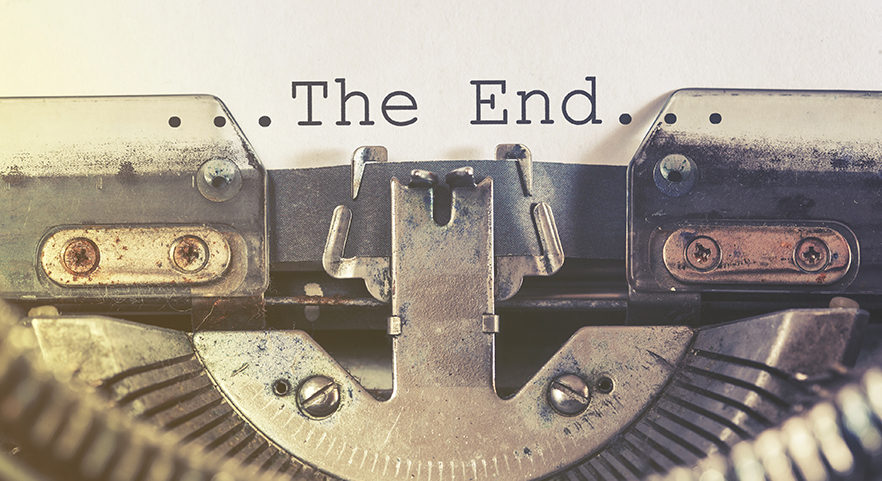You know how it goes… You’ve set up your characters nicely, we’re rooting for them, and the conflict you’ve established in the story works. Your protagonist wants something, they go for it and hit terrific obstacles. It all falls apart for them, we’re worried, you’ve got the reader in the palm of your hand…
And it’s time to write the ending.
It sits there, in your mind, monolithic, the place where everything you’ve set up has to pay off. Hello GAME OF THRONES (which suddenly you find yourself binge watching,) OR you write the ending. But it totally stinks. Somehow you’ve wandered into a cliche junkyard, full of old tropes and bad dialogue.
Here are some of my faves…
In the movie version of the novel THE BAD SEED, Rhoda Penmark, the evil little girl, gets STRUCK BY LIGHTNING. Cuz, you know, God will always punish you if you set a janitor on fire.
In the novel I AM CHARLOTTE SIMMONS, all the bad people get their just desserts, and the main character basically turns into one of the bad guys. Which is great, but Really? I just read 752 pages for this?
Endings are tough. And as you approach them, here are some of the biggest pitfalls…
Everything is wrapped up perfectly, with a bow. This is the happily ever after ending. Where things unrealistically just work out, and everyone’s jumping around smelling the roses.
The big confessional monologue. You know what I’m talking about. The hero spills his or her guts in a long wrenching monologue, reciting all the things he or she has “learned” along the journey.
Someone who was formerly violent, puts down a gun. I get it. It’s a good message. But we’ve seen it a few times.
Deus Ex Machina. This is where something from outside the story swoops in to make everything all right. A new event, or object, or person enters the narrative to resolve the conflict. Translated from Greek, Deus Ex Machina means “God From The Machine.” We can thank old Aeschylus for this– he used to build cranes that at the end of the play, would drop a random actor playing “God” onto the stage to wrap up the show.
A Quick Death that comes out of nowhere. The bad guy is racing away from the hero and gets hit by a car. How convenient. And we never get the real confrontation we need and have been waiting for.
Cliche Central. This is where all the action in the climax feels VERY familiar. Putting down the gun falls into this category. So does the serial killer revealing (for no reason) exactly how and why he did the crime. Also, where either the hero or bad guy seems dead, then wait– he’s alive!
Yes, endings can stink. But they can also be amazing and transformative.
Take Action! When you’re outlining your ending, think about how NOT to tie everything up neatly in a bow. Could there be one dangling unresolved element or thread, that leaves the reader with a question? Could your protagonist have no dialogue in the climax? Could you reveal his or her confession/transformation through action? Could there be no guns in your story, so the hero doesn’t have to put one down? How can you resolve the conflict in your book without using outside help or a ‘god’ from the heavens? Could you use the characters and story elements you’ve already included to build your climax? Instead of your bad guy getting nailed randomly by a truck, how can he or she face the protagonist? Could the hero force him/her into a situation where he/she destroys him/herself?
If you focus your ending on your protagonist facing the one thing that scares the crap out of them (physically or emotionally,) you’ll find the gold. Also, ask how you are giving your main character an opportunity for change/transformation. If you don’t want them to change, could you reveal this in an interesting, action based way?
If you’re stuck and feel like your ending is bad, but you don’t have any ideas, write the WORST version you can imagine. Then try rewriting it with no dialogue and see what happens.
This usually knocks the cliches and cobwebs away.
Happy Endings!
xo Pat
Sign up here for my free weekly writing tips and inspiration!


